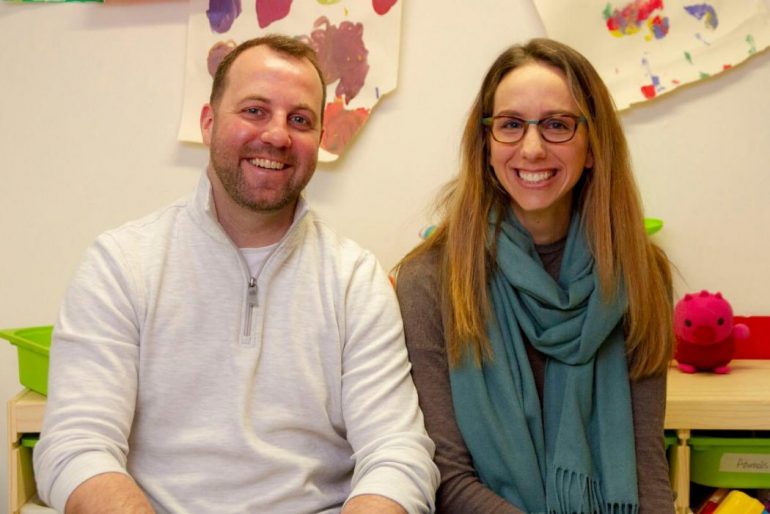HiMama, a childcare centre software solutions provider and Certified B Corp, just got a large baby bonus thanks to a $70 million Series B round to provide early childhood educators and parents with affordable tools meant to improve educational outcomes.
Bain Capital Double Impact led the round, which included participation from existing investors Round13 Capital and BDC Capital’s Women in Technology Venture Fund.
HiMama boasts over 50,000 reviews and an average 4.9 rating in the Canada and United States App Store.
As the need for quality childcare has increased due to COVID-19, and governments like Canada and the United States expand investments in childcare programs, HiMama is ready to seize a sizeable market opportunity.
The startup provides an app with everything from staff scheduling, daily reports, parental communication, payment collection, and education tools to early childhood educators.
With over 50,000 reviews and an average 4.9 rating in the Canada and United States (US) App Store, HiMama claims to be the most reviewed and highest rated software for childcare centres in North America. Its products are used by more than 10,000 childcare centres in Canada and the US, with more than one million parents on the platform.
Founded in 2013, the startup bootstrapped until it raised a $7.5 million CAD Series A round led by Round 13 Capital in 2019. In 2020, HiMama also silently raised $5 million from BDC’s Women in Tech fund.
When CEO Ron Spreeuwenberg co-founded the startup with Alana Frome, it was designed as a Slack-style’ communications platform for childcare programs and parents. It provided a way to share real-time updates, including photos, videos, and SMS messages through its app. It then acquired Canadian software company DailyChildcareReport, adding automated billing and staff management to its platform in 2017.
The new funds will enable HiMama to serve additional childcare centers in Canada and the US, fuel further investments in product development, and offer a foundation for opportunistic growth by acquisition.
RELATED: Hoot Reading secures investment from new $100 million Spin Master venture fund
HiMama plans to double its team of 140 people following the round, bulking up its sales, marketing, customer success, and product and engineering teams. One big focus area for HiMama is its move into the payments space, which it plans to invest in heavily. HiMama already offers payments and billing, and co-founder and CEO Ron Spreeuwenberg told BetaKit the company sees many opportunities for FinTech products, including tuition and invoicing.
HiMama is just the latest company jumping on the FinTech craze. A number of companies have added financial products to their traditionally non-FinTech products over the past few years – Clio and Hopper are some of the latest.
Spreeuwenberg noted that payments alone is a $50 to $100 billion dollars a year in volume in child’s education.
The startup is also looking to add content and curriculum to its product suite. To that end, it acquired US-based FunShine Express in June; the company is helping HiMam launch comprehensive curriculum and activity planning.
HiMama also sees using the funds towards additional acquisitions. The startup has raised just over $80 million to date.
RELATED: Doctor-backed KixCare secures $2 million to make pediatric care more accessible
“What made us decide to go for it in terms of a bigger funding round is just seeing the opportunity,” said Spreeuwenberg. “Before, we were like, this is a great business. We’re getting great growth. Obviously, there’s a need for the product.”
The market opportunity is there with only a handful of companies addressing the early childhood education market that HiMama is in, and the obvious need for childcare globally.
And, Spreeuwenberg pointed out that there’s much more to be done to support children’s development that HiMama can tackle.
“We thought this is a really big market opportunity, and we would be wise to get the capital to scale, and meet that demand that’s there in the market,” Spreeuwenberg told BetaKit.
Spreeuwenberg said that because of COVID-19 there has been more recognition of the importance of childcare and early childhood education as of late, noting that the federal government’s early learning and childhood plan.
RELATED: Getting by with a little help from myBestHelper
Earlier this year, the Government of Canada committed $30 billion to create a national childcare system over the next five years, while the United States committed $1.8 trillion to the American Families Plan for childcare and universal preschool investments, which Spreeuwenberg noted probably means around $400 billion over the next 10 years for HiMama’s sector.
“There’s also this context of governments recognizing how important it is to have well functioning, affordable and accessible quality childcare programs to drive the economy. It’s kind of like the same as having roads and other infrastructure in place to have a well-functioning economy,” Spreeuwenberg said.
Spreeuwenberg also spoke to the impact of COVID-19 accelerating the need for digital solutions for daycares. “We faced the same challenges our customers faced. They were locked down … that obviously impacted us in our business, but the flipside was they were looking for more digital support,” he added.
Responding to the changes, HiMama released features like health screening, temperature checks, contactless drop-off and pick-up. “These kinds of things drove demand on the other side of the equation there,” Spreeuwenberg said.
In terms of competition, Sreeuwenburg cited Procare, a company he describes as the legacy childcare software provider, and some other startup players, but the CEO noted that with a concentration on management across the board, as well as education tools, HiMama sets itself apart.
Feature image courtesy of HiMama


